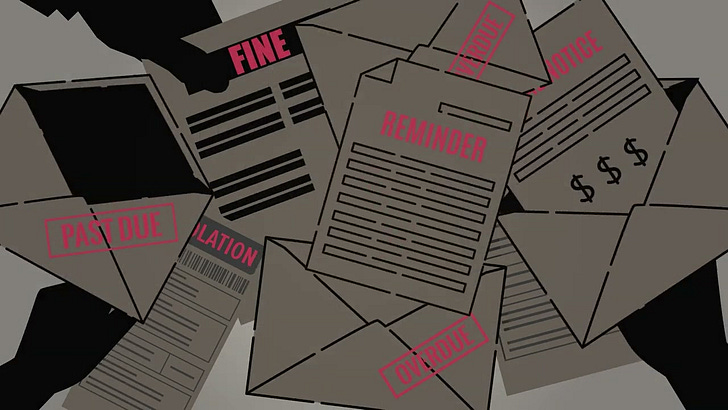Price Remarks on Indian Voters Spark Backlash From Ministers, Colleagues
Today’s email is brought to you by Empower your podcasting vision with a suite of creative solutions at your fingertips.

Immigration and race relations erupted into a fresh political controversy this week after Liberal Senator Jacinta Nampijinpa Price refused to apologise for comments linking Indian-Australian voters to Labor, sparking condemnation from government ministers, opposition colleagues and independent senators during a heated interview on ABC News’ Afternoon Briefing.
Price, who had issued a statement a day earlier insisting she believed Australia maintained a non-discriminatory immigration policy, told reporters she had “nothing to apologise for” when pressed about remarks she made that associated Labor’s “mass migration agenda” with political support from the Indian community. She argued her comments were intended to highlight pressure on housing, infrastructure and essential services.
“What I was doing was highlighting the fact that there is huge concern for Labor’s mass migration agenda, which is applying pressure to housing, to infrastructure, to services,” Price said. “Indian migrants are the second largest migrant group to this country and soon to be the largest migrant group. A recent Red Bridge poll told us that 85% of those who have Indian ancestry, and that’s my children included, by the way, voted for Labor.”
Her remarks drew a swift response in Parliament, where Minister for Multicultural Affairs Anne Ali directly addressed Indian Australians during question time.
“Actions designed to undermine their sense of belonging is wrong,” Ali said. “Over this week, I’ve spoken to members of our Indian diaspora, and they’ve told me that they did not feel safe and they did not feel secure after the rallies that we saw on Sunday. They’ve also told me that comments by some political leaders have exacerbated their fear and shattered their sense of security. You do not have to justify your belonging in this country. We know you. We value you. We thank you for everything you have contributed to Australia.”
Truth matters. Quality journalism costs.
Your subscription to Mencari directly funds the investigative reporting our democracy needs. For less than a coffee per week, you enable our journalists to uncover stories that powerful interests would rather keep hidden. There is no corporate influence involved. No compromises. Just honest journalism when we need it most.
Not ready to be paid subscribe, but appreciate the newsletter ? Grab us a beer or snag the exclusive ad spot at the top of next week's newsletter.
Ali listed contributions from Indian Australians across business, medicine, politics and the economy, saying the government “stands with you as we always have.”
On Afternoon Briefing, Liberal Senator Dave Sharma, who is of Indian heritage, described Price’s comments as damaging. “I think it was very poorly expressed, and I’m glad that Senator Price has since, I think, clarified and withdrawn those remarks because they were hurtful to the Indian-Australian community, of which I consider myself a part,” Sharma said. “I don’t think we should ever be going around stereotyping any migrant community for their political views. People who’ve decided to make a home here in Australia are Australians, and that’s all there is to say about it.”
Sharma noted that Price had doubled down in public, maintaining she had “nothing to apologise about,” but he stressed the importance of keeping debates about migration respectful.
“It’s fair and legitimate to have a debate about the optimal size of Australia’s migration program, and I don’t think we should shy away from that,” Sharma said. “But it’s very important when we do so that we don’t do it on the basis of race or ethnicity or characterisation of the behaviour of any particular group. Australia’s migration program needs to be working in Australia’s national interest, but it should be race and colourblind.”
Asked about weekend rallies that featured anti-immigration slogans, Sharma said some of the materials explicitly singled out Indian Australians. “Certainly some of the promotional material that I’d seen for the rallies had basically singled out Indian Australians for criticism, and I found that abhorrent,” he said. “The Indian-Australian community was made to feel very unwelcome as a result of that. Many of them felt that these protests and marches were directed at them, and I think that’s deeply regrettable.”
Sharma said the backlash had circulated widely on Indian community social media channels, amplifying the distress. “It concerns me deeply, and that’s partly why I wanted to come on your show today — to say that that’s not the view of the Liberal Party. We welcome Indian Australians and the contribution they’ve made to Australia,” he said.
Sharma described Indian Australians as “ambitious for their neighbourhoods, for their children, for their businesses,” calling them “energetic” and “entrepreneurial.” He rejected suggestions that migrant communities could be treated as monolithic voting blocs. “People don’t vote the same way their whole life. People don’t take instruction about how they should vote, and that’s good and proper,” Sharma said. “You’re making a pretty deep analytical error if you think that certain ethnic or migrant groups, or professions for that matter, or genders, all vote in a certain way. It’s not true. We as the Liberal Party should be striving to win everyone’s interests and hopefully their support.”
Pressed on whether discontent was growing within the Liberal Party, Sharma acknowledged the damage. “I certainly regret the hurt that it has caused in the Indian-Australian community, and I think we need to help address that and help make clear that they are welcome in the Liberal Party and they are welcome in Australia,” he said.
Independent Senator Jacqui Lambie, who also appeared on the program, condemned Price’s remarks. “Obviously you have a whole Indian community out there that is terribly, terribly upset with her comments, and I just don’t think there was any need for her comments,” Lambie said. “What I hate to see is division. We are all one country, and we have to be careful as lawmakers with what we say and how we say it.”
Lambie expressed concern about extremist elements at protests that carried anti-Indian and anti-Jewish sentiment. “If you want to go and support neo-Nazis, then that is absolutely shocking and you probably need to have a good look at yourself in the mirror,” she said. “Probably get off social media and stop reading the misinformation and disinformation that is going on.”
She said disinformation on platforms was fueling paranoia and division. “Absolutely, it’s spreading through social media. We’ve seen it with COVID — absolutely shocking,” Lambie said. “Unfortunately, with social media, it’s like gambling. It becomes highly addictive, and the algorithms will feed you exactly what you are looking for. That makes your head even worse. I feel for those people, because I’m worried about their own mental health.”
She argued that vulnerable Australians were being manipulated. “The rich keep getting richer and the poor keep getting poorer, and that makes for more vulnerable people out there looking for something to belong to,” Lambie said. “Through that misinformation and disinformation and not regulating social media, they’re being targeted.”
The debate over migration comes as both major parties work to shore up relationships with multicultural communities amid global tensions. Sharma used the interview to also criticise former Victorian premier Daniel Andrews for attending a military parade in China alongside leaders of North Korea, Iran, Cuba and Russia. “I’ve got no problems with Dan Andrews making a visit to China, I’ve got no problems with commercial engagement with China,” Sharma said. “But attending this sort of military parade, which was a show of might clearly intended to send a strong message to the Western alliance system, sends a very bad signal if you’re a former Australian leader.”
Sharma voiced concern over shifting alliances after U.S. tariffs on India appeared to push Prime Minister Narendra Modi closer to Beijing. “This is Modi’s first trip to China in seven years,” he said. “India found the U.S. imposition of tariffs punitive, and that has pushed them into China’s arms. China was using this conference to try and portray itself as the guardian of the global order, as opposed to the United States, which they seek to portray as a disruptor. They are clearly making the most of former close U.S. partners who are upset by their treatment and seeking to capitalise on that discontent.”
Later in the program, Lambie turned her fire on the government’s proposed overhaul of freedom of information laws, accusing the Albanese government of blindsiding the crossbench with short notice. “That tells me once again you’re trying to blindside and use the crossbench as a joke,” she said. “What bothers me more than anything with these new laws that are coming in is the lack of transparency. How do you feel when you’ve been less transparent than what the Morrison government was, when that was one of the biggest things you promised when you went to the last election?”
Lambie said the government’s approach risked further eroding public trust. “There is a lack of trust in the institutions in this country, and the biggest lack of trust is coming to our parliamentarians, and you have to ask why,” she said. She criticised the FOI process for being costly and slow, with documents often heavily redacted. “You wouldn’t need to do anything about the FOI laws if you were actually being transparent in the first place,” Lambie said.
The crossbench senator said Australians deserved greater accountability, warning that restrictions on information access would undermine democracy. “If you actually shared more information, you wouldn’t need to fix the FOI laws,” she said.
The controversy surrounding Price’s remarks, the anti-immigration rallies, and the government’s transparency push have converged to highlight the political pressures facing Parliament. Ministers and senators from across the spectrum acknowledged that public trust, social cohesion and Australia’s international standing are all at stake as debates over migration, race and accountability intensify.
Got a News Tip?
Contact our editor via Proton Mail encrypted, X Direct Message, LinkedIn, or email. You can securely message him on Signal by using his username, Miko Santos.
Sustaining Mencari Requires Your Support
Independent journalism costs money. Help us continue delivering in-depth investigations and unfiltered commentary on the world's real stories. Your financial contribution enables thorough investigative work and thoughtful analysis, all supported by a dedicated community committed to accuracy and transparency.
Subscribe today to unlock our full archive of investigative reporting and fearless analysis. Subscribing to independent media outlets represents more than just information consumption—it embodies a commitment to factual reporting.
As well as knowing you’re keeping Mencari (Australia) alive, you’ll also get:
Get breaking news AS IT HAPPENS - Gain instant access to our real-time coverage and analysis when major stories break, keeping you ahead of the curve
Unlock our COMPLETE content library - Enjoy unlimited access to every newsletter, podcast episode, and exclusive archive—all seamlessly available in your favorite podcast apps.
Join the conversation that matters - Be part of our vibrant community with full commenting privileges on all content, directly supporting The Evening Post (Australia)
Catch up on some of Mencari’s recent stories:
It only takes a minute to help us investigate fearlessly and expose lies and wrongdoing to hold power accountable. Thanks!







